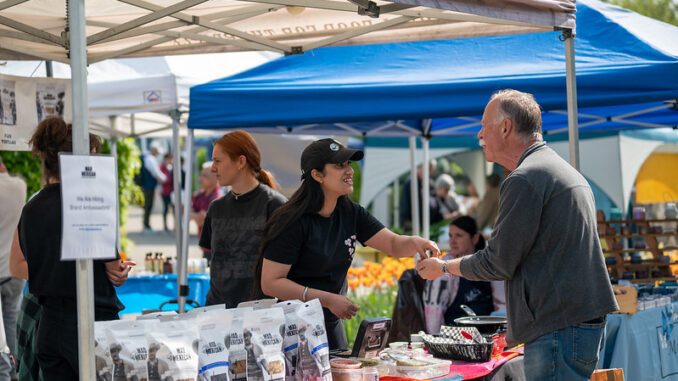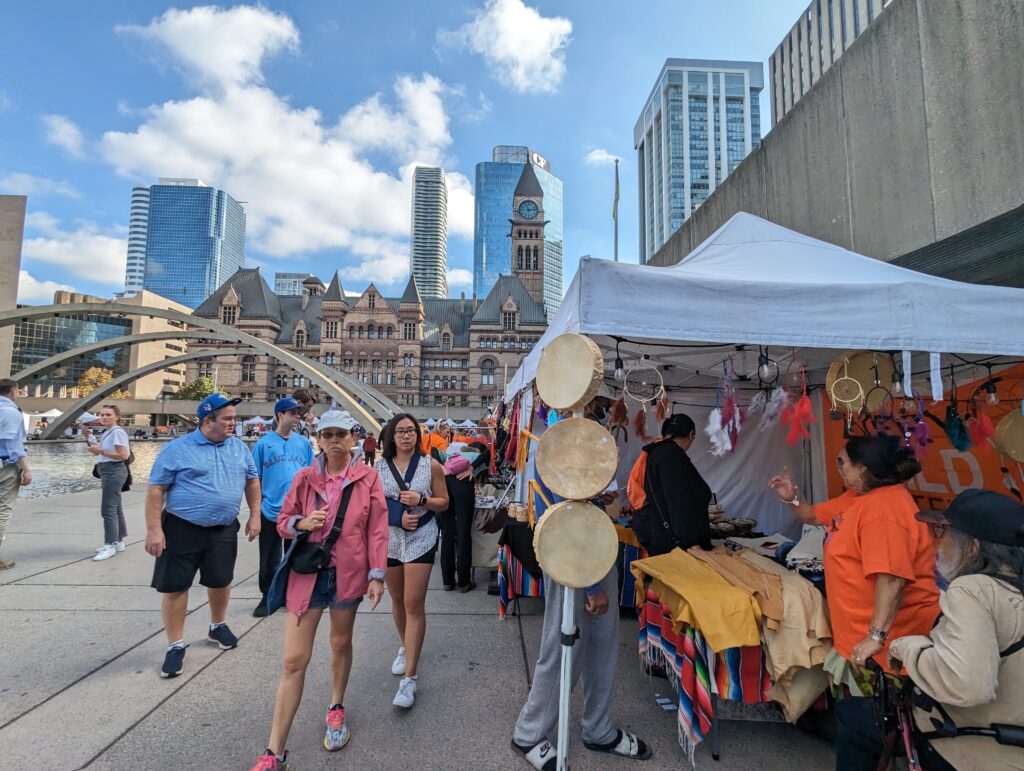
A professor at Seneca Polytechnic and his wife, Sonya Viflanzoff, Co-owner and Beekeeper of Drunk Bee, sell 100% pure and unpasteurized honey jars as a sustainable and traditional family business. However, the biggest challenge for them has been the economy and being able to reach several people. “We have to hit the market, getting them to understand it's a quality product from a single source,” says Viflanzoff.
Pop-up markets have been an alternative for the entrepreneurial couple, generating accessibility and highlighting local and sustainable products. Still, the problem with these is that most pop-up markets are insufficient since many operate temporarily. So, could e-commerce platforms, like Buzzcart, be an alternative solution for these kinds of vendors? This caught the attention of Buzzcart's Co-Founders and Seneca business administration and HELIX students, Mahin Dudhiya and Maaz Hussain.
Last year, Dudhiya and Hussain had a college project called Beeswax Wrap, in which they found out that there were a lot of people selling those wraps, but they could not find a place to sell them except in pop-up markets. “So, how can we help those people to frequently sell their products, as the pop-up market only happens during certain times,” Dudhiya said. So, during that time, the Co-founders surveyed the Seneca community, finding that 67 % of the people would switch to a sustainable product available for them. Also, the survey revealed that nine to ten percent of the people are willing to pay for sustainable alternatives.
This is related to the more sustainable outlook and actions of different companies and consumers. According to a report called Consumer Perceptions of Environmentally Sustainable Food and Associated Labels by Agriculture and Agri-Food Canada in 2023,
- Eight in ten consumers value a sustainable lifestyle
- 65% feel they have a moral obligation to use environmentally friendly products.
- And half of consumers say they are buying more sustainable products than five years ago.
This may demonstrate a wave of growth in a sustainable direction that can contribute to consumers and emerging sellers. A joint study from McKinsey and NielsenIQ examined sales growth for products that claim to be environmentally and socially responsible in the U.S, which, according to the article published last year called Consumers Care about Sustainability—and Back it up with their Wallets, is a fact that there is sustainable market growth, consumers are willingness to pay more, and E-Commerce platforms are growing to help sustainable entrepreneurship.
After all, this experience and learning led Dudhiya and Hussain to build Buzzcart on May 24th.

Buzzcart is an e-commerce platform that aims to help people access and purchase sustainable and eco-friendly products that “are accessible to everyone everywhere,” says Dudhiya. According to Viflanzoff, being part of this type of platform as a local entrepreneur is essential, as it has helped her to reach more buyers. “They had information about how to get Canada Post linked to us, so clients could have shipping done… We are also making ourselves known to the student community in different ways. So, it is a pretty good learning experience,” Viflanzoff says.
The platform supports local products and small-scale vendors, fostering a sense of community and seeking to empower them in what they do. For this reason, the Co-founders focus not on prominent vendors or big companies but on community-based small-scale vendors who go to pop-up markets and sell their products. “Small-scale vendors play a crucial role in our ecosystem here because they are the people doing full-time jobs in their entrepreneurship,” says Dudhiya.

Different things make Buzzcart stand out from other e-commerce platforms; for example, one is the criteria for selecting sellers. According to Dudhiya, it is essential that vendors who apply comply with sustainability standards related to the Sustainable Development Goals (SDGs) by the United Nations. Another aspect that Buzzcart offers and contributes to local entrepreneurs is Buzz learning. This section is under development and seeks to include educational content on sustainability. Dudhiya mentioned, "Buzz Learning is a place where we want to develop a community, to teach people how to start their own sustainable business and apply sustainability in daily life. Then, people can switch and instantly have the option available here with Buzz Cart."
The Co-funders continue strengthening Buzzcart and reaching more local sellers, entrepreneurs, and those interested in sustainability. This year, they have two primary goals. One is the competition with Enactus Canada, where, as student leaders and entrepreneurs, they will compete with the Buzzcart project, representing Enactus Seneca. The other goal is to generate $1000 in revenue for the vendors on the website. “We want to have at least 300 customers that have bought, and we want approximately 50 retained customers,” says Dudhiya.

Be the first to comment